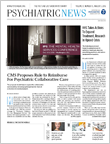Last month the House of Representatives approved the first comprehensive mental health system reform legislation in years, raising the possibility that the Senate will act on similar legislation before the year is over.
The Helping Families in Mental Health Crisis (HR 2646) Act was passed by the House on July 6 by a vote of 422-2. The bill, introduced by Reps. Tim Murphy (R-Pa.) and Eddie Bernice Johnson (D-Texas), has 197 cosponsors, including 141 Republicans and 56 Democrats. It unanimously passed in the House Energy and Commerce Committee in June.
A companion bill in the Senate, the Mental Health System Reform Act of 2016 (S 2680), has been introduced in the Senate by Sens. Chris Murphy (D-Conn.) and Bill Cassidy, M.D. (R-La.). At press time, it was considered highly unlikely the Senate would act before the August Congressional recess, but Health, Education, Labor, and Pensions Committee Chair Lamar Alexander (R-Tenn.) has indicated a desire for the Senate to consider S 2680 early in September, keeping alive the prospect of a mental health bill that could be signed into law during this session of Congress.
APA has been a staunch supporter of the Murphy-Johnson bill and is also urging the Senate to act quickly. Should the Senate act in September, a conference committee would then deliberate a compromise between the two bills.
“Comprehensive mental health reform is urgently needed in our country, and this bipartisan legislation helps address this critical need,” said APA President Maria A. Oquendo, M.D. “We now strongly urge the Senate to take up mental health reform legislation that will make care more available to those who need it, especially patients and families living with serious mental illness. We look forward to working with members of both parties to pass mental health reform this year.”
APA CEO and Medical Director Saul Levin, M.D., M.P.A., expressed gratitude to Reps. Murphy and Johnson for their leadership in introducing the House bill and moving it forward. “It is their dedication to improving the lives of people with mental illness and their years of persistence in advocating for change that has brought us close to achieving much-needed comprehensive mental health reform,” he said.
The Murphy-Johnson legislation approved by the House last month includes a number of sweeping reforms, supported by APA. Among them:
•
Coordination of fragmented mental health resources across federal departments and agencies through the establishment of an assistant secretary for mental health and substance use disorders within the Department of Health and Human Services. The individual must be a highly qualified mental health clinician whose duties and priorities would emphasize promotion of science-driven and evidence-based approaches to care.
•
Establishes a “Nationwide Strategy” to increase the psychiatric workforce and recruit medical professionals for the treatment of individuals with serious mental illness and substance use disorders. Moreover, the legislation would fix barriers to participation of child and adolescent psychiatrists in the National Health Service Corp and explicitly authorizes the Minority Fellowship Program.
•
Improved enforcement of the Mental Health Parity and Addiction Equity Act by requiring annual reports to Congress on parity compliance investigations from federal departments, tasking the proposed assistant secretary with coordinating all programs and activities related to parity in health insurance benefits, and requiring the Government Accountability Office to investigate compliance of the parity law.
•
Increased funding for the National Institute of Mental Health in support of important research on brain disorders, innovative treatments and technologies, and the determinants of violence directed at oneself and others.
•
Support of funding for innovative models of care that have the power to reduce long-term disability for individuals with severe mental illness including the Recovery After an Initial Schizophrenia Episode (RAISE) program, which helps individuals with schizophrenia to lead productive, independent lives while aiming to reduce the financial impact on public systems.
In a statement on his website following the House vote, Murphy said the bill promises an end to “the era of stigma.”
“This historic vote closes a tragic chapter in our nation’s treatment of serious mental illness and welcomes a new dawn of help and hope,” he wrote. “Mental illness is no longer a joke, considered a moral defect and a reason to throw people in jail. No longer will we discharge the mentally ill out of the emergency room to the family and say ‘Good luck, take care of your loved one, we’ve done all the law will allow.’ Today the House voted to deliver treatment before tragedy.” ■
APA’s Division of Government Relations is urging members to contact their senators in support of S 2680. In coming weeks, APA will provide a venue on the APA website and resources for communicating with the Senate. Members should look to Psychiatric News and other communications from APA for details.
